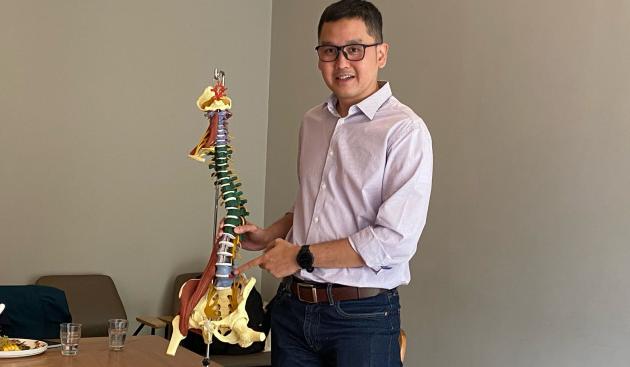Many assume that pinched nerves are an issue for the elderly. However, this problem is increasingly affecting younger individuals, even teenagers. What is causing the rise in pinched nerve cases among younger age groups?
What Is a Pinched Nerve?
A pinched nerve occurs when a nerve is compressed by surrounding soft tissues, such as inflamed and swollen discs, ligaments, or muscles.
“This compression can cause pain in the affected area. While it can happen anywhere in the body, pinched nerves are most common in the spine, neck, or wrist,” the explanation noted.
Who Can Experience a Pinched Nerve?
Anyone can develop a pinched nerve, but those aged 25 and older are more likely to experience it due to prolonged sitting at work.
Poor posture and non-ergonomic habits make this age group more susceptible. However, cases among teenagers are also rising, particularly in the lumbar spine (lower back), leading to lower back pain.
Research from Frontiers in Surgery recorded at least a 6.8% increase in pinched nerve cases among individuals under 21.
Causes of Pinched Nerves in Teenagers
A pinched nerve occurs when surrounding soft tissues or bones compress a nerve. Contributing factors in teenagers include:
● Obesity
● Poor sitting posture
● Prolonged sitting
● Excessive gadget use
● Over-exercising
● Trauma or accidents
● Family history
“Pinched nerves in teens were once considered rare, but modern habits—slouching, inactivity, weak muscle mass—are driving the increase.”
Symptoms of a Pinched Nerve in Teenagers
Symptoms are similar across age groups and vary based on the affected area. Warning signs include:
● Tingling
● Radiating pain
● Burning sensations
● Sharp, electric-like pain
● Numbness
● Weakness in limbs
“Early signs may include back pain, but persistent pain beyond two weeks warrants medical attention to locate the compression.”
Consequences of Untreated Pinched Nerves
Mild cases often improve with conservative treatments like physiotherapy, stretching, and rest. However, neglecting the issue may lead to:
● Numbness or paralysis in limbs
● Loss of bladder/bowel control
● Loss of genital sensation
Treating Pinched Nerves in Teenagers
Mild cases may not require specialized treatment, but monitoring is essential. Severe cases may need surgery, particularly if conservative methods fail.
Minimally invasive surgery, like BESS (Biportal Endoscopic Spine Surgery), is preferred for faster recovery and lower risks—critical for growing teens. This method uses two small incisions (0.5–0.8 cm) for high precision.
Advantages of the BESS Method
BESS outperforms standard endoscopy by allowing greater surgical instrument mobility. Additional benefits include:
● Smaller scars
● Less tissue damage
● Faster recovery
● Reduced post-op pain
● Quicker return to daily activities
● Lower complication and infection risks
Choosing the right treatment depends on symptom severity and nerve compression extent. “Consult a specialist to explore options for your child’s condition.”






